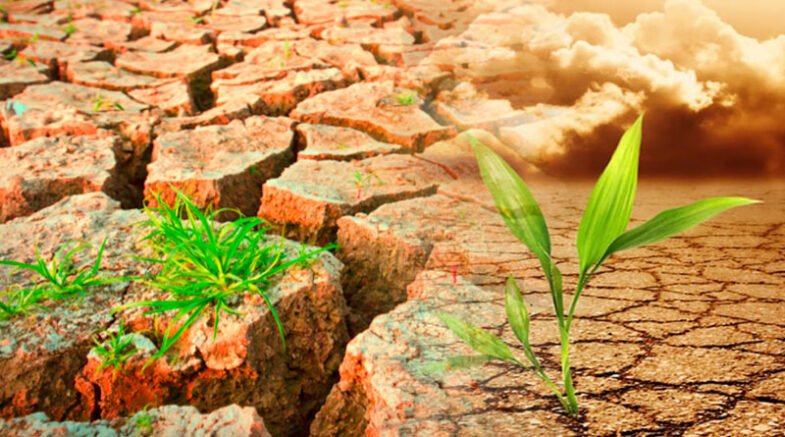Along with the religious implementation of conservation strategies, a bottom-up approach will be used to develop a country-wide efficient adaptation plan.

In order to combat the long-term challenges of climate change, Pakistan must embark on institutional and governance reforms. Along with the religious implementation of conservation strategies, a bottom-up approach will be used to develop a country-wide efficient adaptation plan.
Speakers at a Development Communications Network webinar on “the Geneva Roadmap for a Climate-Resilient Pakistan” on Saturday said it was unlikely that $10 billion in commitments for Pakistan’s post-flood recovery and rehabilitation would be realized.
The keynote speaker was climate change expert Ali Tauqeer Sheikh. Other speakers included Devcom-Pakistan Executive Director Munir Ahmed, Dr. Zainab Ahmed, assistant professor of international relations at Lahore Garrison University, Dr. Khalid Mahmood, economist at the Pakistan Institute of Development Economics (PIDE), and climate advocacy specialist Zahra Khalid Haque.
Munir Ahmed, Executive Director of Devcom-Pakistan and a well-known climate advocacy expert, introduced the webinar’s topic.
He stated that the United Nations and Pakistan co-hosted the “International Conference on Climate Resilient Pakistan” on January 9 in Geneva to present a $31.2 billion “Resilient Recovery, Rehabilitation, and Reconstruction Framework (4RF),” which lays out a multi sectoral strategy for climate-resilient and inclusive rehabilitation and reconstruction.
Another key goal was to secure international support and form long-term partnerships to strengthen Pakistan’s climate resilience and adaptation. According to Munir Ahmed, this was the first-ever UN donor conference in Geneva to raise funds for any country. Pakistan must act wisely to protect its climate-vulnerable communities through a stronger local governance system.
The bottom-up, inclusive approach, as well as multi-stakeholder monitoring for transparency, will aid in long-term recovery and rehabilitation. According to Ali Tauqeer Sheikh, resilient development is not possible without institutional reforms.
The urgency is staring us in the face, with a current price tag of 8% GDP loss and a projected GDP shrinkage of 20% by 2050.
Indeed, resilience, reforms, and economic development are now inextricably linked. Pakistan’s current political and economic systems exacerbate climate vulnerability, which is exacerbated by food and water insecurity, degraded land, and polluted air.
The proposition is simple: greater preparedness can help us avoid public and private losses from climate-related disasters. Savings can be reinvested in climate-smart development.
He said the first order of business is to build political consensus that reforms for climate security are essential and cannot be postponed any longer. Even if many existing commitments are recounted, recycled, and repurposed, not all international pledges will be delivered this month or this fiscal year.
Nonetheless, Pakistan is notorious for delaying the implementation of public-sector projects. Unfinished projects have accumulated to an incredible number over time of more than 1,200 projects worth Rs1.6 trillion.
Top-down investments cannot succeed unless local communities’ coping capacities are strengthened. According to Dr. Zainab Ahmed, the most devastating floods of 2022 will be an environmental issue, but the implications will be geographic, economic, political, security, and social.
The resultant crisis multiplies the already existing water, food, energy, and economic problems, which connect with social problems and translate into political crises.
The international community has long recognized Pakistan’s vulnerability to combat climate change , and $40 billion has been estimated for environmental mitigation and adaptation measures.
Pakistan has always demonstrated incredible resilience, but it requires far more assistance. This is a global conflict that Pakistan should not be fighting alone. However, this does not absolve us of responsibility.
The first step to combat climate change is to raise public awareness about environmental mitigation and adaptation measures. The second step should be to initiate community-wide efforts to save and restore the environment. Zahra Khalid Haque said the Geneva conference offered Pakistan a rare opportunity to leap towards climate-compatible development.
The Geneva Roadmap addresses the immediate challenges of recovery and reconstruction, requiring a minimum funding of 16.3 billion dollars over a three-year period.
Pakistan will contribute half of the funding from its own resources, but will rely on its bilateral and multilateral partners to fill the rest. According to Dr. Khalid Mahmood, Pakistan is experiencing economic difficulties. With rising geopolitical uncertainty causing global economic growth to slow, our economy was also under pressure to contract.
Our economic woes have been exacerbated by a devastating flood, despite our vulnerability to climate change and recurring natural disasters. Our fiscal position is weak, and our foreign reserves are dwindling.
